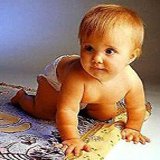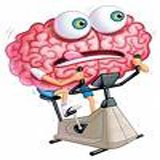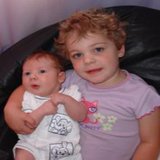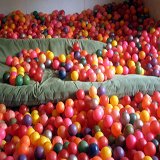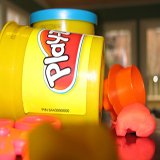Brain Gym Exercises for Smarter Kids?
Do you want to learn how to nurture a smarter kid?
Get the latest updates here on brain gym exercises, fetal brain development, baby brain development, brain development early childhood and child intellectual development.
Brain development early childhood continues to grow rapidly during this phase of her life.
Raise-Smart-Kid is here to help you through this brain development early childhood phase.
Brain Gym Exercises
I first encountered brain gym exercises in "Smart Moves," a best selling book written by Carla Hannaford, Ph.D. Dr. Hannaford states that our bodies are very much a part of all our learning, and learning is not an isolated "brain" function.
Every nerve and cell is a network contributing to our intelligence and our learning capability. Many educators have found this work quite helpful in improving overall concentration in class.
What is Cognition in Children?
A good way to define cognition in children (also called brain development early childhood, child cognitive development) is your child's ability to learn new skills and concepts.
Child cognitive development is her ability to make sense of events that happen around her, her ability to use her long term memory accurately and her ability to solve small problems.
Brain gym exercises done with young children will help your child ease through the different stages of brain development.
Brain Development Early Childhood
Every day you will notice examples of how your child cognitive development - her understanding of new concepts and her problem solving skills are developing throughout her second and third years.
At this age children are in the imagination stage. They become altogether better at both thinking and learning by exercising preschool learning games and preschool learning activities. Brain gym exercises will also help improve imagination.
Brain Gym Exercises and Early Childhood Cognitive Development
Symbolism
Until she reached 18 months or so, your growing child was unable to use symbols - in other words, she could only think in terms of here-and-now.
If an object was not physically in front of her, she had difficulty thinking about it.
But this changes mid-way through the second year, when she starts to think in images.
The emergence of symbolism vastly increases the possibilities for cognitive development in young children.
Child Development Attention Span
Part of learning and cognition involves focusing on a piece of information long enough to extract meaning from it.
Babies have a random attention span, but as your child nears the end of her second year she begins to exercise control over the attention she gives to an object or activity.
When something grabs her interest, she focuses on it until she has satisfied her curiosity.
Long Term Memory
The ability to recall previously learned information is an essential part of learning and cognition in young children.
This capacity increases in the second and third years.
Both her short term memory and long term memory become more effective.
This allows her to remember recent experiences (something that happened perhaps a minutes ago) and distant experiences (something that happened several months ago).
Language and Cognition
Learning development and baby language development are closely connected.
Your toddler's language explosion improves not only her communication skills but also her ability to learn.
She uses language to ask questions, to test out her ideas, to reason, and to improve her understanding of the world.
Continuous Learning
Remember, however, that she continues to learn principally through explorative and imaginative play toys and through listening, talking and discussing.
It doesn't matter whether she play with an empty box, with a bath toy, with her cutlery during meals, with a jigsaw, or in fact with anything at all.
When she interacts playfully with anything in her environment she learns new things and brain development early childhood takes place.
The same applies to cognition and language - she learns something new in every conversation she has.
Look on her as a dynamic scientist, who soaks up information like a sponge and is then eager to put this new knowledge into practice.
Normal Routine
Of course, there are specific things you can do to stimulate and promote brain development early childhood, but do keep in mind that a substantial amount of learning development takes place every day just through you child following her normal routine.
For example, getting dressed in the morning is a complex task involving sorting, matching, hand eye coordination, memory and concentration.
Bit-by-bit, each day she learns more about dressing until she achieves a level of mastery at the age of 3 that seems light years ahead of her competence at the same task when she was only 15 months old.
Her View of the World
It's important not to make assumptions about your child's thought processes.
Despite her remarkable progress in early child development, there are still two distinctive characteristics of her learning and cognition skills that are different from yours.
- Firstly, she doesn't fully understand cause and effect, and may identify a connection between two events where no such connection exists.
This is partly due to her immature reasoning and partly due to her lack of experience.
For instance, if a light goes out - perhaps because the bulb has broken - at the exact moment that she sneezes, your child may think that her sneeze has caused the lights to go off.
Then in future you could find that every time she sneezes, she looks around anxiously waiting for something to happen to the lights!
When your child makes a comment about a cause-and-effect connection (for instance, when she tells you that she make the rain appear because it started when she put her coat on), you should explain clearly why the connection doesn't really exist.
She might not believe you at first, so you will probably need to repeat your explanation later.
- A second major difference in her thinking is that she still tends to see things only from her own point of view.
That's why your 2 year old looks blankly at you when you reprimand her, for example, for playing with her older brother's toys when she was previously warned off.
The rebuke "How do you think your brother feels when you mess up his toys?" goes right over her head, because she isn't yet at the stage when she can easily see things from another person's perspective.
She begins to be able to appreciate other points of view by the end of her third year.
Vitamins for Memory
When considering memory vitamins, it is felt that natural supplements are better than unnatural supplements.
Certain brain food such as snacks can do much to improve brain functioning. Foods high in antioxidants can dramatically reverse memory loss, restore motor coordination and balance. Examples of brain vitamins include raisins, berries, apples, grapes, cherries, prunes, and spinach.
Another healthy group of brain food contains Omega-3 fatty acids. Omega-3s help improve general brain functioning and restore memory. Brain food high in Omega-3 include: salmon, mackerel, sardines, herring, flax oil, and walnuts.
The whole body runs on carbohydrates. Too much of simple carbohydrates can be harmful to the body and brain functioning by creating a sharp rise in blood sugar. Complex carbohydrates digests well and do not cause sharp rises in blood sugar. Brain food high in complex carbohydrates include peanuts, dried apricots, dried beans, yogurt, oat bran, All Bran cereal (be careful of the high sugar content in some brands), and sourdough bread. Including vinegar or lemon juice with your foods helps suppress a sharp rise in blood sugar.
Using brain vitamines will ensure memory improvement and optimal brain fitness.
Expert Advice
Looking for more questions and answers about brain gym exercises for children?
Also be sure to visit all the brain gym exercises pages for different ages.
There are lots of interesting articles available for further reading regarding brain gym exercises.
Find It!
Can't remember where you read something specific? Just type in your search term in the box below and your specific topic will be returned to you instantly.





